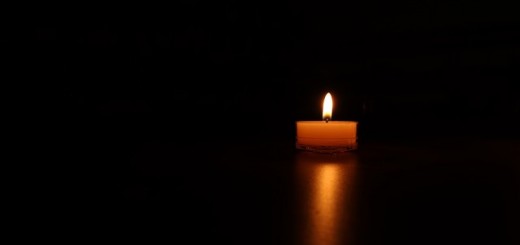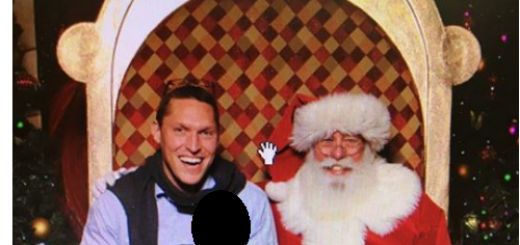Not the Doctor’s Decision — Updated

This week Jerusalem Post health reporter Judy Siegel reported that Samuel Golubchuk, the 84-year-old frum Jew from Winnepeg, whose doctors seek to remove him from his ventilator and feeding tube, had awakened. Mr. Golubchuk is now described as “awake, alert, has returned back to his baseline, sitting up in a chair at times, more interactive, and shaking hands purposively.”
Nevertheless his doctors still seek to kill him, and are contesting the matter in court, including moving to exclude the affidavits of experts on the grounds that they arrived too late. Apparently winning to them is more important than Mr. Golubchuk’s life. Indeed in a similar case recently in Calgary, involving an elderly Chinese man, whose family contested the doctors’ decision to cut off life support, and won, the patient eventually improved so much that he was able to walk out of the hospital and return home. Nevertheless the doctors continued to pursue an appeal. Presumably they wanted to bring him back to the hospital and kill him.
There is a hearing this afternoon that might well determine Mr. Golubchuk’s fate. His name is Chaim Shmuel ben Pinya. His son Percy can be reached at [email protected]




Please tell them to daven for the little girl in Florida — Ruchama Aliza Schwab — whose family faced similar pressure to “pull the plug” after a near-drowning incident in August. I wrote about it in last week’s Mishpacha magazine. She is still unconscious but is home now on life support. B’H in this case the family was able to withstand the pressure and finally get the hospital to agree to keep their daughter alive. Media attention and help from a local Chabad rav as well as the Agudah and other rabbanim all helped.
It says in the Gemara that people should daven for other people in similar straits. The little girl’s full name is Ruchama Aliza Sarah Chana bas Esther Liba. Ruchama was added when she was in the hospital, for Divine mercy.
There are certain decisions a person cannot make even for himself; there are, however, many that he can. When he cannot, I would normally prefer the family (advised by competent authorities) over doctors making the final decisons. Given that that is the point under debate, I applaud your efforts. Sadly, the world looks more like Canada than the US.
But lets paint a different scenario. Patient has minimal mental function, is stable, but is given no chance, save a miracle, of any improvement, let alone recovery. Patient develops a condition that is exceedingly painful, perhaps less so given his diminished capacity, that can with very high probability, NEVER be cured. He then develops a second condition from which he will die, without aggressive treatment well beyond air and food. Decisons in that case again belong to the family. The range of psak in that scenario is rather broad.
Given advances in medicine, the cases will get more complex. If the orthodox community wants to be heard, it will have to advise families on very difficult issues. Otherwise both the rights of the family and our halakhic approach, will be increasingly in jeopardy.
Did Dr. Zachorowicz actually examine Mr. Golubchuk?
Given advances in medicine, the cases will get more complex. If the orthodox community wants to be heard, it will have to advise families on very difficult issues. Otherwise both the rights of the family and our halakhic approach, will be increasingly in jeopardy.
Comment by dr. william gewirtz
Dr. Gewirtz is making a profound statement that requires very serious consideration …..from all angles.
Please forgive my intrusion into such a sensitive and halakhic matter.. but, based on recent events in my life, I feel compelled to speak.
My mother-in-law recently went home to be with the Lord. We loved her greatly in life and will surely miss not seeing her again in this world. Neither my husband nor myself has ever witnesses the orderly process of dying before as our other parents went quite fast. This death was different. I can say honestly there were parts of this process that were quite beautiful. In the west, we have been conditioned to jump in and try to “fix” everything and when we do, I feel we may miss the beauty of death. The Psalmist wrote (Psalm 116) “Precious in the sight of the Lord is the death of his saints”. (For me, a saint is simply anyone who trusts in the Lord with all their heart.) Death is like a birth – painful but not without glory or grace – from this world to the next – one without pain but wonder in the presence of G-d.
In looking back, I think the family’s actions and decisions must have been inline with mom’s will and G-d’s will. We could have sought aggressive medical treatment but that would have prolonged death. As loving children, we learned from Hospice what the process looks like. From mom, we learned where she was in the process. She was very aware of what was about to occur and she was OK with that. She even told her son “don’t worry about what is going to happen, it will be OK and you and your sister will be OK “. In the same conversation, she said: “the gates are wide open, I know the way, come on let’s get out of here”. At the time, we did not understand her statement thinking the gate was the door to the ER. Later, when she left the hospital, she thanked everyone at the Assisted Living Home for their care and love over the years. She was closing doors and tying up loose ends. For us, meeting with her, albeit individually, we were able to tell her that we loved her and she responded like-wise. On a physical level, she refused all meds, food and drink and was quite stong willed about that without acting irrational or out-of control. In fact, it seemed like the right thing to do. She was not frantic or emotional but she was very sure of her decision. Throughout the process she remained at peace was very comfortable and even though morphine was available, she never required pain relief. It seemed like she savored every step of the journey as a step toward her heavenly home. Hours before she died, her eyes opened very wide and she lifted her right arm up at a 45 degree angle with intensity and purpose toward a spot above her bed. How she had the energy and strength to do this is beyond my understanding; her arms were without meat and the flesh hung as a curtain. She did this several times and yet, she only required oxygen a few days before her death. Afterward, she would rest by taking cat naps. When she awoke, she turned her head toward my voice and reached her hand toward mine and held it tight and knowing who I was said; “I love you” in response to my identical words to her. I could not stop saying the words of Psalm 23 silently without feeling that the very words seemed to be a commentary of the events that were happening. At death, my mother-in-law was 92. She had experienced a very full life and an even blessed death in the sense that a Jewish person could understand.
May HaSHem grant wisdom and grace to al those who would endeavor to address the complex issues of death and dying that all families will face and may the families know his peace as they walk through the valley of the shadow of death.